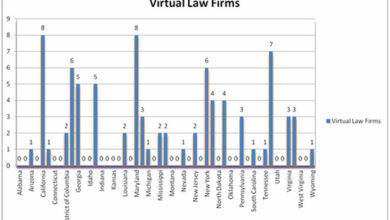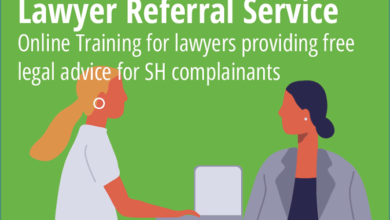Essential Legal Resources for Small Business Owners
Starting and running a small business can be an exciting and rewarding venture. However, it also comes with a host of legal requirements and responsibilities. From understanding employment laws to protecting intellectual property, small business owners need access to essential legal resources to navigate the complex world of business law. In this article, we will explore the key legal resources that every small business owner should have at their disposal.
1. Small Business Administration (SBA)
The Small Business Administration (SBA) is a valuable resource for small business owners. It provides a wealth of information and resources on various legal aspects of starting and managing a business. The SBA website offers guides, templates, and tools to help entrepreneurs understand legal requirements, draft contracts, and navigate through the complexities of business laws.
Additionally, the SBA provides access to mentors and experts who can offer guidance and advice on legal matters. Small business owners can also take advantage of the SBA’s training programs and workshops, which cover topics such as employment law, contracts, and intellectual property.
2. Local Small Business Development Centers
Local Small Business Development Centers (SBDCs) are another valuable resource for small business owners. These centers are typically hosted by universities or colleges and offer free or low-cost consulting services to help entrepreneurs start and grow their businesses.
SBDCs often have legal experts who can provide guidance on various legal aspects, such as business formation, contracts, and licenses. They can also help small business owners understand local laws and regulations that may apply to their specific industry or location.
3. LegalZoom
LegalZoom is an online platform that offers affordable legal services to small businesses. They provide a range of legal resources, including document templates, business formation services, and legal advice.
Small business owners can use LegalZoom to draft important legal documents such as contracts, non-disclosure agreements, and employee handbooks. They can also seek legal advice from licensed attorneys through LegalZoom’s platform.
4. State and Local Government Websites
State and local government websites are an excellent source of legal information for small business owners. These websites often provide detailed information on business registration, licenses, permits, and compliance requirements.
Small business owners can access state and local government websites to understand the specific legal requirements that apply to their business. They can also find resources and contact information for relevant government agencies that can provide further guidance.
5. Trade Associations and Industry Groups
Trade associations and industry groups are valuable resources for small business owners operating in specific industries. These organizations often have legal experts who specialize in the legal aspects of the industry and can provide industry-specific legal advice and resources.
Small business owners can join trade associations and industry groups to access legal resources, stay up to date with industry regulations, and network with other professionals in their field.
6. Online Legal Research Platforms
Online legal research platforms such as Westlaw and LexisNexis offer comprehensive legal databases that small business owners can leverage to conduct legal research. These platforms provide access to a wide range of legal materials, including case law, statutes, regulations, and legal journals.
Small business owners can use online legal research platforms to gain a better understanding of legal principles and precedents that may impact their business. They can also use these platforms to research specific legal issues, such as intellectual property rights or employment laws.
7. Attorney Networks and Referral Services
Building a network of trusted attorneys is crucial for small business owners. Establishing relationships with attorneys who specialize in business law can provide valuable legal advice and representation when needed.
Attorney referral services, such as the American Bar Association’s Lawyer Referral Directory, can help small business owners find qualified attorneys in their area. These services match entrepreneurs with attorneys who have expertise in the specific legal areas relevant to their business.
8. Online Legal Communities
Online legal communities, such as legal forums and Q&A websites, can be a valuable resource for small business owners seeking general legal advice. Websites like Avvo and JustAnswer allow entrepreneurs to ask legal questions and receive answers from qualified attorneys.
While online legal communities should not be considered a substitute for personalized legal advice, they can provide small business owners with a starting point for understanding legal issues and potential solutions.
9. Employment Law Resources
Employment law is a critical area that small business owners must navigate carefully. Violating employment laws can result in costly lawsuits and damage to a business’s reputation. Therefore, it is essential for small business owners to have access to resources that help them understand and comply with employment laws.
The U.S. Equal Employment Opportunity Commission (EEOC) website provides valuable information on federal employment laws, including anti-discrimination laws, wage and hour regulations, and workplace safety requirements. Small business owners can also consult local labor departments and employment law attorneys for guidance on state-specific employment laws.
10. Intellectual Property Resources
Protecting intellectual property is crucial for small businesses, especially those in creative or technology-driven industries. Small business owners should familiarize themselves with intellectual property laws and have access to resources that help them protect their inventions, trademarks, copyrights, and trade secrets.
The United States Patent and Trademark Office (USPTO) website provides extensive information on patents, trademarks, and copyrights. Small business owners can access resources, guides, and databases to understand the registration process and learn how to protect their intellectual property rights.
Conclusion
Running a small business involves navigating a complex legal landscape. By utilizing essential legal resources, small business owners can better understand and comply with the legal requirements that impact their businesses. From government websites to online platforms and attorney networks, these resources provide valuable guidance, information, and support. By staying informed and proactive, small business owners can protect their interests, mitigate legal risks, and focus on growing their businesses.
FAQs
1. What are the essential legal documents every small business owner should have?
Small business owners should have essential legal documents such as a business plan, contracts, non-disclosure agreements, employee handbooks, and any industry-specific legal documents required for their business operations.
2. How can small business owners ensure compliance with employment laws?
Small business owners can ensure compliance with employment laws by staying informed about federal and state regulations, seeking legal advice when needed, documenting employment policies and procedures, and implementing regular employee training programs.
3. What should small business owners consider when protecting their intellectual property?
Small business owners should consider conducting thorough research to ensure their intellectual property is not already protected by someone else. They should also consider registering their trademarks, patents, and copyrights to establish legal ownership and protect their rights.
4. Are online legal resources sufficient for small business owners, or should they consult an attorney?
While online legal resources can provide valuable information and guidance, it is always advisable for small business owners to consult an attorney for personalized legal advice. Attorneys can provide a deeper understanding of specific legal issues and ensure compliance with applicable laws.
5. How can small business owners find affordable legal services?
Small business owners can find affordable legal services by utilizing online platforms like LegalZoom, seeking legal aid from local legal clinics, or working with attorneys who offer flexible fee structures such as flat fees or monthly retainers.
Summary
Small business owners need access to essential legal resources to navigate the complexities of business law. The Small Business Administration, local Small Business Development Centers, and online platforms like LegalZoom offer valuable information, templates, and expert advice. State and local government websites provide information on specific legal requirements, while trade associations and industry groups offer industry-specific legal resources. Online legal research platforms, attorney networks, and online legal communities also provide valuable guidance. Small business owners should be aware of employment laws and intellectual property protection, utilizing resources from the U.S. Equal Employment Opportunity Commission and the United States Patent and Trademark Office. By utilizing these resources, small business owners can protect their interests, comply with legal requirements, and focus on the growth and success of their businesses.









